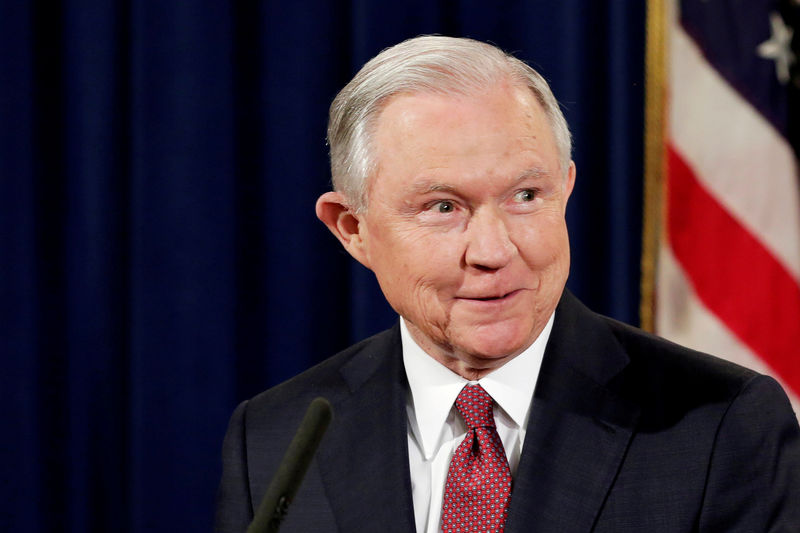By Sarah N. Lynch
WASHINGTON (Reuters) - Students and faculty at Georgetown Law School gathered on Tuesday to protest that U.S. Attorney General Jeff Sessions was delivering an address about the right of free speech on college campuses to an invitation-only audience without giving critics of the Trump administration an opportunity to ask questions.
Several dozen protesters stood on the front steps of the school, some with duct tape over their mouths to symbolize that they felt their views were censored from the event. Some held signs denouncing racism, censorship and U.S. President Donald Trump's decision to rescind "DACA," the Obama administration's Deferred Action for Childhood Arrivals policy that shields immigrants who were brought to the United State as children.
Taking turns with a bullhorn, students and some faculty members accused the school of shutting them out from attending the speech and asking questions.
In his address, Sessions focused on concerns about whether the rights of speakers on college campuses were being trampled by student protesters who find their views offensive.
Sessions complained that protesters were silencing speakers. He also said the department plans to file a brief in a college free speech case this week.
Protesters "are now routinely shutting down speeches and debates across the country in an effort to silence voices that insufficiently conform with their views," he said.
One protester, third-year law student Charlotte Berschback, complained on the sidelines of the protest that invitations to the Sessions speech had been withdrawn from students who had RSVPed and had initially been told they would have a seat.
"We pay a ton of tuition," she said. "We should have a role in deciding who comes to our school." She added that liberal students had been excluded from attending the Sessions event and that the school should have used a lottery process to let students attend.
Sessions cited concerns about multiple incidents at college campuses around the country, including the University of California at Berkeley and Middlebury College in Vermont.
Sessions mentioned recent violent protests at Berkeley. He said the school "was reportedly forced to spend more than $600,000 and have an overwhelming police presence simply to prove that the mob was not in control of the campus."

The Justice Department later said it was also filing a brief on behalf of students at Georgia Gwinnett College who are challenging a school policy that requires them to use "free speech zones" to express their views.